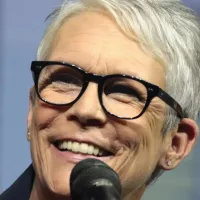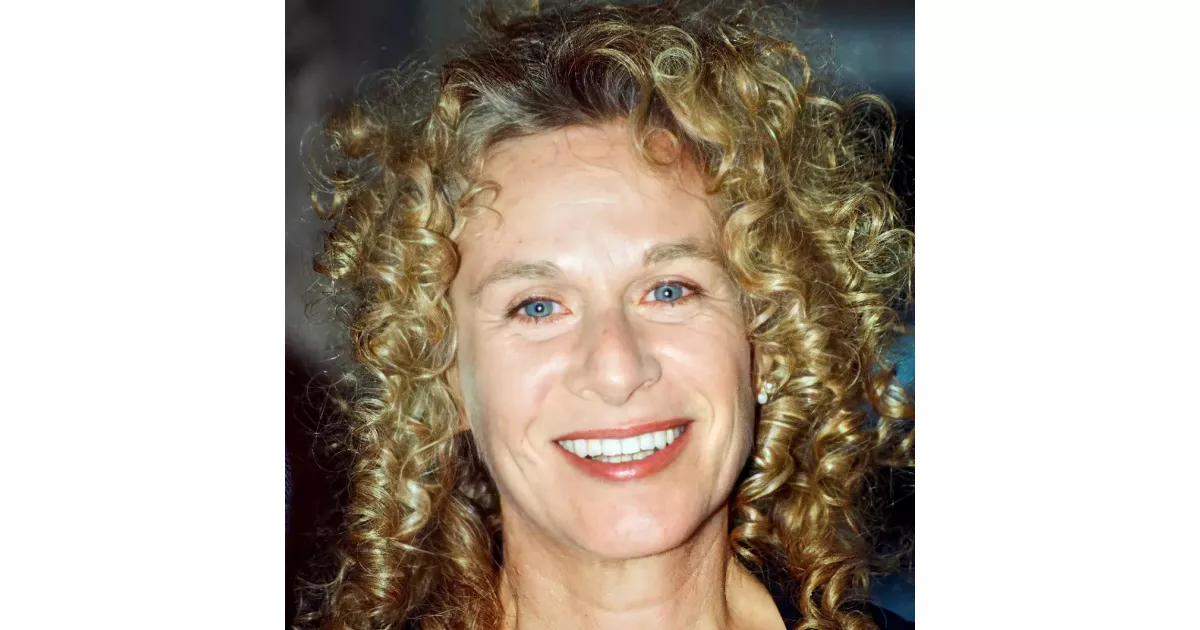Carole King is an American singer-songwriter with a career spanning over six decades. She rose to prominence in the late 20th century, achieving significant success with numerous chart-topping hits. Notably, she penned or co-wrote an impressive 118 songs that reached the Billboard Hot 100 and 61 songs that charted in the UK. Her prolific songwriting has solidified her legacy as one of the most accomplished female songwriters in history.
1936: Carole King's Parents Meet
Carole King's parents, Eugenia Cammer and Sidney N. Klein, met in 1936 at Brooklyn College, setting the stage for her family's story.
1937: Carole King's Parents Marry
Carole King's parents married in 1937 during the Great Depression and started building their life together.
February 9, 1942: Birth of Carole King
On February 9, 1942, Carole King was born Carol Joan Klein in Manhattan, New York City.
1958: Carole King's First Recording
Carole King, then Carol Klein, made her first official recording in 1958, releasing the promotional single "The Right Girl" with ABC-Paramount.
1958: Carole King Begins Her Music Career
In 1958, a teenage Carole King, then known as Carol Klein, began her music career. She formed a band, changed her name, and released her first single, "The Right Girl".
1958: Brill Building Era
The film "Grace of My Heart" draws inspiration from the creative environment of the Brill Building between 1958 and 1964, a period significant in Carole King's early career.
August 1959: Carole King Marries Gerry Goffin
Carole King married Gerry Goffin in August 1959, a significant event that would shape her personal and professional life.
1959: Goffin and King's Playful Response
In 1959, Gerry Goffin wrote "Oh! Neil" in response to Neil Sedaka's hit "Oh! Carol," which King recorded and released as a single, marking a collaborative moment.
1960: Goffin and King Write Number One Hit
In 1960, Goffin and King wrote "Will You Love Me Tomorrow," which became a number one hit for the Shirelles, marking their first major success as songwriters.
1962: "It Might as Well Rain Until September" Charts
Carole King released "It Might as Well Rain Until September" in 1962, which achieved chart success in the US and the UK.
1962: Carole King Charts in the UK
Carole King's song "It Might as Well Rain Until September" reached number 3 on the UK charts in 1962, marking her most successful single in the country during that period.
1964: End of Brill Building Era
The film "Grace of My Heart" draws inspiration from the creative environment of the Brill Building between 1958 and 1964, a period significant in Carole King's early career.
1965: California Music Scene
The film "Grace of My Heart" also draws inspiration from the California music scene between 1965 and 1971, a period that marked a significant phase in Carole King's career.
1966: Carole King's Recording Career Pauses
Carole King's focus on songwriting led to a pause in her recording career by 1966, marking a shift in her artistic focus.
1967: Release of "Sometime in the Morning" by The Monkees
The Monkees released the Carole King-penned song "Sometime in the Morning" in 1967.
1967: Goffin and King's Songwriting Success Continues
Throughout the early 1960s, Goffin and King continued to write hit songs for various artists, solidifying their place in the music industry.
1968: Carole King Forms "The City"
After divorcing Goffin, Carole King moved to Los Angeles in 1968 and formed the band "The City," marking a new chapter in her career.
1969: "The City" Disbands
Despite releasing an album, "The City" disbanded in 1969, and the album was soon deleted.
1970: Carole King Releases Debut Solo Album
Carole King released her debut solo album, "Writer," in 1970. Though not as successful as "Tapestry", it marked the start of her solo career.
June 18, 1971: Release of "The Carnegie Hall Concert: June 18, 1971"
The live album "The Carnegie Hall Concert: June 18, 1971" was released in 1996.
December 1971: "Carole King: Music" Released, Achieves Gold Certification
Carole King released her album "Carole King: Music" in December 1971, and it was quickly certified gold on December 9th. The album, along with "Tapestry" occupied the Billboard top 10 simultaneously for several weeks, marking a period of significant success for King.
1971: "Tapestry" and "Mud Slide Slim" Released
Carole King released her iconic album, "Tapestry," in 1971, which included the hit song "You've Got a Friend", a track also featured on James Taylor's album "Mud Slide Slim," released around the same time.
1971: "Tapestry" Achieves Breakthrough Success
Carole King's album "Tapestry" was released in 1971, topping the US charts for 15 weeks and remaining on the charts for several years, marking a turning point in her career.
1971: End of California Music Scene Era
The film "Grace of My Heart" also draws inspiration from the California music scene between 1965 and 1971, a period that marked a significant phase in Carole King's career.
January 1, 1972: "Tapestry" Reaches Number One
On January 1, 1972, Carole King's album "Tapestry" reached the top of the Billboard charts, where it stayed for three weeks.
1972: Release of "Rhymes and Reasons"
Carole King released her album "Rhymes and Reasons" in 1972, which went on to achieve gold certification.
1972: Carole King Discusses "You've Got a Friend"
In a 1972 interview, Carole King discussed the origins of her hit song, "You've Got a Friend," revealing that while not written for anyone, James Taylor's fondness for the song led them to both record it.
1973: Free Concert in Central Park
Carole King performed a free concert to a crowd of at least 100,000 people in New York City's Central Park on May 26, 1973. This performance was recorded for the film "Carole King: Home Again - Live in Central Park".
1973: Release of "Fantasy"
In 1973, Carole King released her album "Fantasy", which achieved gold certification and produced two successful singles.
September 1974: Release of "Wrap Around Joy"
In September 1974, Carole King released her album "Wrap Around Joy", which became her third album to achieve the number one spot on the Billboard charts.
October 16, 1974: "Wrap Around Joy" Certified Gold
Carole King's album, "Wrap Around Joy", released in September 1974, was certified gold on October 16, 1974.
October 19, 1974: "Wrap Around Joy" Enters Top Ten
On October 19, 1974, Carole King's album "Wrap Around Joy" entered the Billboard top ten charts at number seven.
March 1, 1975: "Nightingale" Peaks at Number Nine
"Nightingale", a single from Carole King's album "Wrap Around Joy", peaked at number nine on the Billboard charts on March 1, 1975.
1975: Bruce Springsteen Covers "Goin' Back"
Bruce Springsteen covered Carole King's song "Goin' Back" at two performances in October 1975.
1975: Music for "Really Rosie"
Carole King composed and recorded music for a children's animated TV adaptation of Maurice Sendak's "Really Rosie" in 1975. The music was released as an album of the same name, with lyrics by Sendak.
1975: Voice Acting in "Really Rosie" and Appearance in "The Mary Tyler Moore Show"
In 1975, Carole King lent her voice to the animated TV special "Really Rosie" and made an appearance on "The Mary Tyler Moore Show."
March 7, 1976: Performance with Bruce Springsteen
Bruce Springsteen joined Carole King onstage at the Beacon Theatre in New York City on March 7, 1976. They performed "The Loco-Motion" as the final encore.
1976: Release of "Thoroughbred" and Reunion with Gerry Goffin
Carole King released "Thoroughbred", her last studio album with Ode Records, in 1976. The album marked a reunion with former husband and songwriting partner, Gerry Goffin, who co-wrote four songs on the album. King also embarked on a promotional tour for the album.
1977: Release of "Simple Things" and Marriage to Rick Evers
Carole King collaborated with songwriter Rick Evers on her album "Simple Things", released in 1977. This was her first album with a new label distributed by Capitol Records. King and Evers married shortly after the album's release.
1977: Relocation and Environmental Advocacy
Carole King relocated to Idaho in 1977 and became involved in environmental issues.
1977: "Simple Things" Named "Worst Album of 1977"
Despite achieving gold certification, "Simple Things" was named "The Worst Album of 1977" by Rolling Stone magazine.
1978: Release of "Welcome Home"
Carole King released "Welcome Home" in 1978, marking her debut as a co-producer on an album.
1978: Death of Rick Evers and Release of "Her Greatest Hits"
In 1978, Rick Evers, Carole King's husband and collaborator, died of a cocaine overdose. King also released a compilation album that year, "Her Greatest Hits".
1978: Death of Rick Evers
Rick Evers died from a cocaine overdose in 1978, shortly after his separation from Carole King.
1979: Release of "Touch the Sky"
Carole King released the album "Touch the Sky" in 1979.
1980: Release of "Pearls - The Songs of Goffin and King"
Carole King released the album "Pearls - The Songs of Goffin and King" in 1980. The album featured a hit single, an updated version of "One Fine Day".
1981: "The City" Rediscovered
"The City"'s music was rediscovered by Classic Rock radio in the early 1980s, with songs like "Snow Queen" gaining airplay and introducing the band to a new generation.
1982: Release of "One to One"
Carole King released "One to One", her first album with Atlantic Records, in 1982.
1983: Release of "Speeding Time"
"Speeding Time", an album by Carole King, was released in 1983. The album marked a reunion with Lou Adler, who produced "Tapestry".
1984: Appearance in "Faerie Tale Theatre"
Carole King appeared in an episode of "Faerie Tale Theatre" in 1984.
1984: Dubbed "Queen of Rock"
Following a well-received concert tour in 1984, journalist Catherine Foster of The Christian Science Monitor dubbed Carole King "a Queen of Rock".
1985: "The City"'s Resurgence Fades
By 1985, the radio play of "The City"'s music decreased, but their brief resurgence demonstrated the enduring appeal of King's early work.
1985: Soundtrack Work and Cameo Appearance
In 1985, Carole King wrote and performed "Care-A-Lot", the theme song for "The Care Bears Movie", and "Home Is In Your Heart". She also scored and performed the soundtrack to the film "Murphy's Romance" with David Sanborn, and even had a cameo appearance in the movie as Tillie, a town hall employee.
1988: Off-Broadway Debut
Carole King starred in the off-Broadway production "A Minor Incident" in 1988.
1989: Release of "City Streets"
Carole King returned to Capitol Records in 1989 and released the album "City Streets". This album featured Eric Clapton on two tracks and Branford Marsalis on one.
1990: Advocacy for the Northern Rockies Ecosystem Protection Act
Beginning in 1990, Carole King started working with the Alliance for the Wild Rockies and other groups to advocate for the passage of the Northern Rockies Ecosystem Protection Act (NREPA).
1992: Grammy Nomination for "Now and Forever"
Carole King received a Grammy Award nomination for her song "Now and Forever", which featured in the opening credits of the 1992 film "A League of Their Own".
1993: Release of "Colour of Your Dreams"
In 1993, Carole King released the album "Colour of Your Dreams", which featured an appearance by Slash.
1994: Testifying Before Congress
Carole King testified before Congress in support of NREPA in 1994.
1994: Broadway Performance in "Blood Brothers"
Carole King took on the role of Mrs. Johnstone in the Broadway production of "Blood Brothers" in 1994.
1995: Release of Tapestry Revisited: A Tribute to Carole King
The tribute album "Tapestry Revisited: A Tribute to Carole King" was released in 1995, featuring artists like Rod Stewart, Celine Dion, Amy Grant, Richard Marx, Aretha Franklin, Faith Hill, and the Bee Gees.
1996: Appearance in "Brighton Beach Memoirs" in Ireland
Carole King appeared in a production of "Brighton Beach Memoirs" in Ireland, directed by Peter Sheridan, in 1996.
1996: Release of Grace of My Heart
The film "Grace of My Heart," loosely based on Carole King's life and career, was released in 1996.
1997: Collaboration with Celine Dion and VH1 Divas Live Performance
Carole King collaborated with Celine Dion on the song "The Reason" for Dion's album "Let's Talk About Love" in 1997. They also performed the song as a duet on the first VH1 Divas Live benefit concert, where King also sang "You've Got a Friend" and "(You Make Me Feel Like) A Natural Woman".
1998: "Anyone at All" for "You've Got Mail"
Carole King wrote and performed "Anyone at All" for the film "You've Got Mail", starring Tom Hanks and Meg Ryan, in 1998.
2000: "Where You Lead" as "Gilmore Girls" Theme
Carole King re-recorded her hit song "Where You Lead" as the theme song for the television show "Gilmore Girls" in 2000. She adjusted some of the lyrics to better suit the show's mother-daughter narrative, making it more relevant to the changing times and shifting away from its original sentiment, which had become outdated in the wake of the Women's liberation movement. King frequently performs this version with her daughter, Louise Goffin.
2001: Collaborations with Yuki and Semisonic
Carole King co-wrote the song "Sayonara Dance" with Toni Stern for Japanese artist Yuki's debut solo album "Prismic". King also collaborated with Semisonic frontman Dan Wilson on a song for the band's album "All About Chemistry" in 2001.
2001: Release of "Love Makes the World" and Gap Ad
Carole King released the album "Love Makes the World" in the autumn of 2001 on her own label, Rockingale, distributed by Koch Records. The album featured songs King had written for other artists and included collaborations with Celine Dion, Steven Tyler, Babyface, and k.d. lang. The same year, King and her daughter appeared in a television ad for Gap, performing a new song from the album, also titled "Love Makes the World".
2003: Campaigning for John Kerry
Carole King began campaigning for John Kerry during the 2003 Democratic primaries.
July 2004: Launch of Living Room Tour
In July 2004, Carole King kicked off her Living Room Tour at the Auditorium Theatre in Chicago.
July 29, 2004: Performance and Speech at the Democratic National Convention
Carole King made a speech and performed at the Democratic National Convention on July 29, 2004, in support of John Kerry's presidential campaign.
July 2005: "The Living Room Tour" Album Release
Carole King released "The Living Room Tour" album in July 2005, which featured recordings from her tour performances in Chicago, Los Angeles, and Hyannis.
2005: Carole King's Songwriting Legacy Recognized
By 2005, Carole King had solidified her place as a prolific songwriter, with her work achieving significant success on the UK singles charts, solidifying her impact on the music industry.
August 2006: "The Living Room Tour" Album Re-Enters Charts
In August 2006, "The Living Room Tour" album re-entered the Billboard 200 at 151.
October 2007: "Welcome to My Living Room" DVD Release
Carole King released a DVD of her Living Room Tour, titled "Welcome to My Living Room," in October 2007.
November 2007: Tour of Japan and Collaboration with Anne Murray
Carole King toured Japan with Mary J. Blige and Fergie in November 2007. During that same year, she collaborated with Anne Murray on a duet of "Time Don't Run Out on Me."
2007: Continued Advocacy for NREPA
Carole King continued her advocacy for NREPA, testifying before Congress again in 2007.
2007: The Troubadour 50th Anniversary Reunion
In 2007, Carole King and James Taylor reunited at The Troubadour to celebrate the club's 50th anniversary.
2008: Appearance on The Colbert Report
Carole King appeared on The Colbert Report on March 18, 2008, discussing her support for Hillary Clinton in the presidential election and performing "I Feel the Earth Move".
2009: Third Testimony for NREPA
Carole King testified before Congress for the third time in support of NREPA in 2009.
April 2010: "The Essential Carole King" Release
In April 2010, "The Essential Carole King," a compilation album, was released, featuring her work and covers by other artists.
May 2010: "Live at the Troubadour" Release
Carole King and James Taylor released their collaborative live album, "Live at the Troubadour," in May 2010.
December 2010: Death of Carole King's Mother
Carole King's mother, Eugenia Gingold, passed away in December 2010 at the age of 94 in Delray Beach, Florida, due to congestive heart failure.
2010: Troubadour Reunion Tour with James Taylor
Carole King and James Taylor embarked on their Troubadour Reunion Tour in 2010, commemorating their first performance together at The Troubadour in West Hollywood in 1970.
2010: Release of "Live at the Troubadour"
Carole King's "Live at the Troubadour" album was released in 2010.
2010: Release of King for a Day by Micky Dolenz
Micky Dolenz of The Monkees released a tribute album titled "King for a Day" in 2010, featuring songs written or co-written by Carole King.
2011: "A Holiday Carole" Release
Carole King released her album "A Holiday Carole" in 2011, featuring Christmas music and original songs co-written with her daughter, Louise Goffin.
April 2012: "A Natural Woman: A Memoir" Publication
Carole King's autobiography, "A Natural Woman: A Memoir," hit the shelves in the United States in April 2012, published by Grand Central.
May 2012: Announcement of Retirement from Music (Later Clarified as a Break)
Carole King announced her retirement from music in May 2012, suggesting that her 2010 Troubadour Reunion Tour with James Taylor might have been her last. She later clarified that she was taking a break rather than retiring completely.
December 2012: Hollywood Walk of Fame Star
Carole King was honored with a star on the Hollywood Walk of Fame in December 2012.
2012: Publication of Memoir and Revelation of Past Abuse
In her 2012 memoir, Carole King opened up about the physical abuse she endured during her marriage to Rick Evers.
May 2013: Honorary Doctorate of Music from Berklee College of Music
Carole King was awarded an Honorary Doctorate of Music by Berklee College of Music in May 2013.
May 22, 2013: Gershwin Prize for Popular Song
On May 22, 2013, Carole King became the first woman to receive the Gershwin Prize for Popular Song, an honor bestowed upon songwriters for their lifetime achievements. President Barack Obama presented her with the award.
June 2013: Campaign Support for Ed Markey
In June 2013, Carole King actively campaigned in Massachusetts for Ed Markey, the Democratic candidate for the US Senate.
September 2013: Pre-Broadway Tryouts of Beautiful: The Carole King Musical
"Beautiful: The Carole King Musical" premiered in pre-Broadway tryouts in San Francisco in September 2013.
November 21, 2013: Broadway Debut of Beautiful: The Carole King Musical
"Beautiful: The Carole King Musical" began previews on Broadway on November 21, 2013.
2013: Campaigning for Ed Markey
Carole King campaigned for Ed Markey in the special election to succeed John Kerry as US Senator from Massachusetts in 2013.
2013: Carole King Receives Gershwin Prize
In 2013, Carole King was the first woman to receive the Library of Congress Gershwin Prize for Popular Song.
January 12, 2014: Official Opening of Beautiful: The Carole King Musical
"Beautiful: The Carole King Musical" officially opened on Broadway on January 12, 2014.
January 2014: MusiCares Person of the Year
Carole King was honored as the MusiCares Person of the Year in January 2014.
October 6, 2014: Performance at a Democratic Fundraiser
Carole King performed at a Democratic fundraiser attended by Vice President Joe Biden on October 6, 2014.
December 6, 2015: Kennedy Center Honoree
Carole King received the prestigious Kennedy Center Honor on December 6, 2015.
2015: Carole King Honored at Kennedy Center
Carole King was named a Kennedy Center Honoree in 2015.
July 3, 2016: British Summer Time Festival Performance
Carole King headlined the British Summer Time Festival in London's Hyde Park on July 3, 2016, marking the first time she performed her entire "Tapestry" album live.
2016: Reprising Role in "Gilmore Girls: A Year in the Life"
Carole King reprised her role as Sophie in the "Gilmore Girls" Netflix revival, "Gilmore Girls: A Year in the Life," in 2016.
January 21, 2017: Participation in the Women's March
Carole King participated in the 2017 Women's March in Stanley, Idaho, carrying a sign that read "One Small Voice."
2017: Release of British Summer Time Festival Album
An album of Carole King's performance at the British Summer Time Festival was released in 2017.
October 2018: Release of "One (2018)"
Carole King released a new version of her song "One," titled "One (2018)," in October 2018. This marked her first new recording since 2011.
November 2018: Residence in Idaho
As of November 2018, Carole King resides in Idaho.
Mentioned in this timeline

Barack Obama the th U S President - was the...

Hillary Diane Rodham Clinton is a prominent American politician lawyer...

Joe Biden is an American politician who served as the...
California is a U S state on the Pacific Coast...

Bruce Springsteen known as the Boss is an iconic American...

C line Dion is a highly successful Canadian singer often...
Trending

58 minutes ago Wagner Moura's Film 'Uma Batalha Após a Outra' Wins PGA Award, Oscar buzz.

58 minutes ago Jamie Lee Curtis' 'Blue Steel' finds streaming success; Curtis guests on podcast

58 minutes ago Analysts Mixed on UnitedHealth Group's Investment Story After Stock Slide
59 minutes ago Oil Price Surge and Stock Market Decline Sparked by Iran War Fears

59 minutes ago Simon Baker's family, girlfriend, and 'The Mentalist' coming to Netflix soon.
2 hours ago South African Health Officials Arrested on Fraud and Theft Charges.
Popular

Jesse Jackson is an American civil rights activist politician and...

Hillary Diane Rodham Clinton is a prominent American politician lawyer...

XXXTentacion born Jahseh Dwayne Ricardo Onfroy was a controversial yet...

Jim Carrey is a Canadian-American actor and comedian celebrated for...

Kashyap Pramod Patel is an American lawyer who became the...

Michael Joseph Jackson the King of Pop was a highly...
